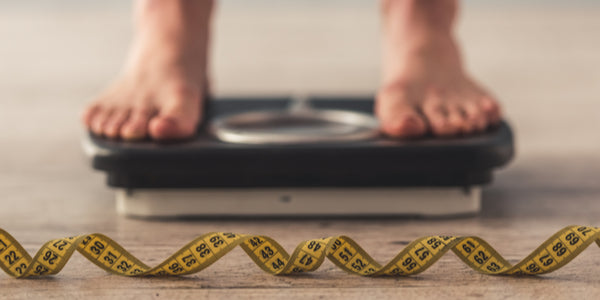
There are numerous physiological causes of weight gain, but certain life events can also be a culprit. Also known as stress weight or relationship weight, it can be frustrating to not understand how and why this happens.
Thus, seek no further than this article that covers multiple reasons for gaining weight during a major life event.
How Life Events Trigger Weight Gain
Many people believe that gaining weight during major life events like going to college, the honeymoon phase of marriage, and having children is inevitable. Also, there’s nothing inherently wrong with weight gain. But gaining too much weight can increase the risk for health complications like type 2 diabetes and heart disease.
However, understanding the reasons for weight gain during major life events can help one prevent gaining unnecessary weight.
Generally speaking, life events trigger weight gain due to physiological/physical and mental/psychological reasons. Unfortunately, determining which one precedes the other is about as clear as to whether the chicken or egg came first.
Nonetheless, they are inextricably linked and tend to overlap anyways.
Physical Reasons for Weight Gain
The root cause of physical weight gain is nearly always a change in hormone levels that then disrupts optimal metabolism.
Overeating changes cellular communication and function, causing increases and decreases in certain hormones that regulate appetite, hunger, sleep, brain focus, and more. The disruption of hormones and subsequently neurotransmitters ultimately creates an environment for weight gain to easily occur.
Insulin
Insulin is an anabolic hormone that helps shuttle glucose into cells and also creates an environment for the body to store glycogen and fat. When someone continually over consumes poor quality carbohydrates, the pancreas has to work harder and harder to secrete enough insulin.
Eventually, this leads to a tired pancreas and insulin sensitivity of cells, so glucose and insulin remain circulating in the blood. This causes three major problems that are conducive to weight gain.
Number one, that extra glucose will be stored as fat. Number two, cells and thus the brain will constantly feel starved because they aren’t obtaining fuel from the glucose, perpetuating more food cravings and consumption. Number three, the mere presence of circulating insulin largely prevents the body from tapping into fat stores, making meaningful weight loss nearly impossible.
All in all, insulin is a major regulator of physiological hunger and appetite and disrupting normal, healthy eating patterns highly affects its functions.
Leptin and Ghrelin
Ghrelin is the hunger hormone and leptin is known as the fullness hormone. More ghrelin is secreted when someone is physiologically hungry and leptin is released as the stomach expands and the brain recognizes it’s satisfied and fueled enough.
Unfortunately, over-eating disrupts this communication, especially that of leptin secreted by adipose tissue. Like insulin, cells become resistant to leptin as more and more is secreted. This not only causes one to need to eat more in order to feel satisfied but also creates a proinflammatory environment that can also lead to weight gain.
However, unlike insulin, because leptin is secreted from adipose tissue which will never tire like the pancreas, there isn’t a mechanism to slow its secretion. Therefore, resetting leptin secretion by eating appropriate portions regardless of fullness is the single best way to reset it. Sadly, this often involves feeling some level of hunger even after eating for a time period until fully reset.
Interestingly, ghrelin and weight gain are less related. But, certain life events may cause someone to feel hungrier such as starting a medication that increases appetite after an illness diagnosis, or overcoming an eating disorder.
Cortisol
Known as the stress hormone, cortisol is released from the adrenal glands. These glands secrete a surge of cortisol in the morning and also during stressful times. This latter situation is problematic because chronically elevated cortisol causes inflammation and increases cravings for refined carbs, concentrated poor quality fats, and salty foods.
In addition, elevated cortisol levels can lead to a decrease in testosterone and a subsequent loss of muscle mass. Because lean muscle mass is most responsible for rate of metabolism, this disruption can lead to weight gain via burning less calories at rest.
Cortisol also plays a role in blood sugar management and metabolism regulation of carbs and fats in general. So, it makes sense that chronically high levels of cortisol can promote weight disturbances.
Serotonin
It’s common knowledge that a class of antidepressant medications known as SSRIs frequently cause weight gain. SSRI stands for selective serotonin reuptake inhibitors. In essence, these drugs block the reuptake of serotonin, which allows it to remain in circulation.
Serotonin is known as the “happy hormone” because it’s responsible for increased feelings of positive emotions. However, serotonin is also partly responsible for controlling appetite, with elevated levels of serotonin leading to an increase.
As many major life events lead to depression, it’s common to begin taking an antidepressant. While beginning an antidepressant is certainly warranted, it can be helpful to know that other antidepressants exist that don’t affect serotonin as much and therefore may lead to less or no weight gain.
Dopamine
Eating food triggers the release of dopamine –the feel-good hormone– by the brain upon initial intake and again when the food hits the stomach. If any “feeling” is addictive, it is related to the release of dopamine.
In fact, opioid drugs function to stimulate the release of dopamine. Regardless of mental and emotional factors, it’s this constant secretion of dopamine and feeling good that can lead to addiction. And although food addiction is not yet validated in scientific literature, it’s understandable how someone could essentially become addicted to the feeling that eating food causes.
Interestingly, this response is heightened by eating highly palatable “foods” high in refined sugar and poor-quality fats. Thus, eating mostly whole foods is a way to avoid triggering this cycle in the first place.
Psychological Reasons for Weight Gain
Oftentimes, the below behaviors lead to the hormonal changes described above, and these metabolic disruptions then promote the continuation of these behaviors. It can become a vicious cycle without intervention. Thankfully, having awareness around these reasons is the first step in preventing unnecessary weight gain.
Using Food to Cope
As is now known, because the act of eating triggers the release of hormones and neurotransmitters that essentially elicit happiness and pleasure, it’s easy to understand why people turn to food to cope with negative emotions.
Whether subconsciously or to simply pass the time, people often start eating more during difficult times. Eating helps tame or avoid negative emotions like anger, grief, sadness, frustration, disappointment, and heartbreak.
Typical events that provoke this type of eating behavior include:
•Death of a friend or family member
•Loss of job
•Quitting a competitive or professional sport
•Self or family illness diagnosis
•Divorce
•Romantic or familial relationship breakups
•Caring for a chronically ill or mentally handicapped child
•Winter months (seasonal affective depression)
In its most extreme form, this behavior can morph into binge eating disorder, described as an uncontrollable desire to eat, often way past fullness. Binge eating can dramatically impact the quality of life, so it’s important to seek professional help in this instance.
Stress Eating
Stress eating is very similar to using food to cope, but smaller life events tend to trigger this type of eating. The mechanism of action is also similar, because the food is being consumed to release dopamine that will mitigate some of the stress.
Unfortunately, this behavior is a bandaid for coping with and managing stress. What’s more, the potential weight gain can actually lead to more stress.
Life events that often elicit stress eating include:
•Overworking
•Going to college
•Studying for a major exam
•Caring for children
•Feeling unsupported
•New divorce
•Relationship problems or arguments
•Pandemics
Mindless Eating
Mindless eating can be defined as eating without awareness of nutritional content, portion sizes, frequency of eating, or a combination of all three. This type of eating behavior is more common in those who disassociate or withdraw during difficult times. Oftentimes, there is a lack of connection between the mind and body, whether due to negative or positive events.
In reality, mindless eating looks like:
•Eating right from bags or boxes without portioning
•Eating only fast food to avoid cooking
•Consuming only snack-like foods
•Forgetting to include nutrient-dense options like fruits and vegetables
•Not prioritizing lean protein and healthy fats and eating when not hungry
•Continuing to eat despite being physiologically satisfied.
Normally, this eating behavior is related to events such as:
•Grief of any sort
•Traumatic events (abuse, physical injury)
•Honeymoon phase of a relationship
•Going to college
•Feeling unfulfilled at work
•Loss of job
•Pandemics
Rebel Eating
Rebel eating is perhaps less common than the others listed, but certainly has the potential to cause weight gain. It tends to require some level of connection to the body and the intention to over eat.
Without a doubt, abuse is the most common trigger of this eating behavior. Others include:
•[Physical, emotional, and especially sexual abuse]
•Being bullied as a child
•Going to college
•Rebounding from restrictive eating (aka after dieting or eating disorders)
•Beginning forced to exercise
•Illness diagnosis
•Quitting a competitive or professional sport
Happy Eating
A majority of the other eating behaviors are related to negative events. However, there are certain positive events that are known to potentially elicit consuming more food or indulging in calorically dense foods more often.
Again, the frequent release of dopamine is going to perpetuate this cycle, despite many people realizing what is actually happening.
Life events that trigger happy eating include:
•New marriages or relationships
•A new job that involves food (eating disorders practitioner, food blogger, recipe developer, restaurant reviewer)
•Long vacations (like a trip to another country for 4 or more weeks) or vacationing frequently
•Multiple major celebrations (i.e. graduation parties one summer)
•Becoming a new mom
•Going to college
Finally, it’s evident that certain events can trigger more than one type of eating behavior and that people will handle and perceive situations differently. Whereas one new mom might be overeating out of stress, another might be overindulging due to stark happiness.
Nonetheless, determining healthy ways to cope with all different kinds of stressors is vital for preventing unnecessary stress weight gain.
The Bottom Line
Major life events can trigger many changes, one being unwanted weight gain. To no one’s fault, different life experiences can lead to changes in eating behaviors that eventually cause hormonal and metabolic changes.
Unfortunately, these metabolic disruptions then perpetuate the same or worse poor eating habits, making the cycle difficult to break. However, having awareness around the causes of life events and weight gain can largely prevent it.
Learning how to healthfully cope with life stressors without using food is certainly vital as well.






